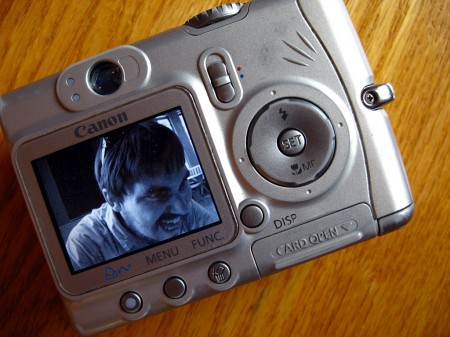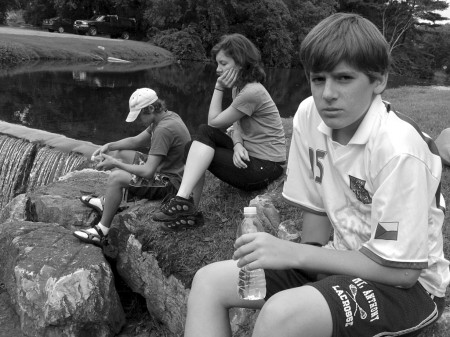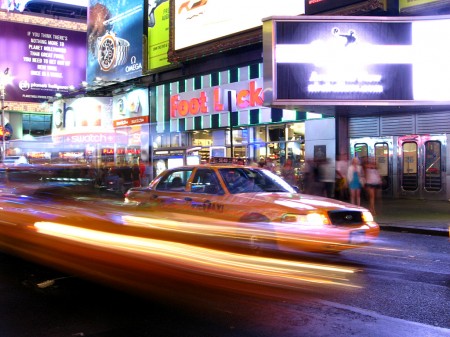Probably inspired by the recent and unfortunate demise of the ‘Scrabulous’ word game on Facebook, I came up with another variant version of the original board game, based on a fusion with a popular version of poker.
For the most part, it is the same as normal; rules on scoring of letters, how words can be placed, and so forth remain. The big difference is that there are three face-up tiles beside the board. People can use any combination of their seven tiles and the three tiles to make a word on the board. Once the three letters are down and everybody has seven of their own, a three minute timer is started. Whoever can come up with the highest scoring word then gets to place it on the board. Players can use pads of paper to write down possible words and their corresponding scores, if desired. The same person can theoretically go time after time, replacing their own letters and the three upward facing letters every time a word is placed.
Normally, each player subtracts the value of their remaining letters from their score, when the first player runs out of tiles and can draw no more from the bag. (Also, if a player manages to use all seven of their letters in their final turn, they get to add the value of everyone else’s tiles to their score.) A fairer system, for this variant, might be to require that a player use all remaining upright tiles, as well as their own, to earn the bonus from the remaining tiles of others.
[Update: 6 August 2008] Tonight, Gabe, Emily, and I played the first ever game of Scrabble Hold-Em. The experience made it clear that a few rules needed to be refined.
Here are some updates:
- There are two variants to the game. In one, the three upright letters in the ‘hold’ change every time a word is put down, getting randomly exchanged for others in the bag. In the other version, only letters used to form words are replaced from the bag. Players choose which version they want to play before the game begins.
- In the event that two people have words of equal value, the word with the highest value letter will win (like a high card in poker). If the highest letters are tied, the second highest are used, and so forth. If all letters are tied, a coin will be flipped.
- The game ends when one player clears their rack, regardless of whether face-up tiles remain in the ‘hold.’
- A one minute time limit makes for a very hectic sort of game.
- Because it is harder to make ten letter words than seven letter words, a ‘Bingo’ is worth 75 points. This is awarded to a player who uses all seven of their own tiles, as well as the three in the ‘hold.’
Overall, this game made me feel more as though this could be a good variant upon the original game. It would be excellent if other people could try it and leave comments here.




